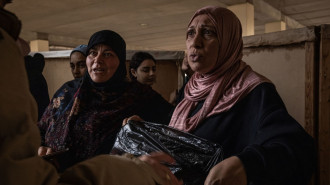Sex Bomb: The Life and Loves of an Asian Babe
Belonging is one of the most important aspects of achieving quality of life.
The global pandemic has proven how vital connections are and the detrimental impacts of isolation. It is often taken for granted, from within and outside of the community, that as British Asians we possess this inherently.
But who can you turn to in a practical sense?
"In a world where there’s no such thing as oversharing, I am trying to come to a place where I judge less. In my debut memoir, Sex Bomb, I adopt a different approach, by sharing some of my life lessons and career fails"
When trying to establish belonging, there are a lot of things to take into account when it comes to who to consider as part of your community. Are they people from the same neighbourhood, religion, race, hairstyle, size, politics, walks of life, accent, work or discussion groups as you?
More to the point, if the thing that once aligned you, the same hairstyle, for instance, should change can you still maintain ties?
The stereotypes of South Asians, having far and wide-reaching families and social networks are everywhere, but often they only depict one side of the story.
South Asian culture is steeped in perfection and ideals, so we rarely hear about the stories that are not fit for Instagram. Yet there are plenty, and also lots to be gleaned from.
The way in which poorly organised or impromptu communities tend to exist in news travels; facts transform into hearsay to gossip to lies. It makes me wonder if the price to belong within some of these actually live up to the benefits.
Often people who don’t fit into conventional social connections may end up relying on help from charities, that’s if they are willing to accept the help that’s available, as no one wants to feel like a charity. Yet, whether or not it’s prescriptive, everyone needs belonging.
I feel that as a community, we do need to support one another more and listen. Even where help may be currently available, it may not be accessible to people who feel excluded for not resembling others in such groups/or preconceived notions.
In the Asian community, the focus on aesthetics has always been prevalent, long before social media existed. How much did so and so pay for their wedding? What car is that doctor driving these days? This only reinforces the expectations of perfection, which we all know to be very different from reality.
In a world where there’s no such thing as oversharing, I am trying to come to a place where I judge less. In my debut memoir, Sex Bomb, I adopt a different approach, by sharing some of my life lessons and career fails.
Growing up, I didn’t see Asian women speaking much, let alone in jobs like mine in writing/comedy. As a comedian, I’ve mostly felt like on the fringes of society. I’ve been lucky enough to be subject to the kindness of strangers, in rooms with audiences, that have unwittingly been my ‘community’. We’ve often been from different walks of life but shared moments together.
"South Asian culture is steeped in perfection and ideals, so we rarely hear about the stories that are not fit for Instagram. Yet there are plenty, and also lots to be gleaned from"
I suppose it helps that in comedy there isn’t a requirement for audiences to necessarily agree with the stand-up, but rather listen, and merely to find it funny.
My industry is one where you learn as you go, and I am hoping that my book will help people accept that all you can do each day is try your best and that you don’t have to be perfect.
Although courtesy of the Internet, it does feel as though there is more discussion in recent times on issues pertaining to sex, these discussions tend to be in silos. However, I do feel that we could benefit from leaning into some of what has historically been uncomfortable areas of discussion.
|
So much of our attitudes towards things are influenced by interpretation and experience, without sharing what we have learnt, it runs the risk of the same mistakes being made over and over again.
Particularly when it comes to relationships, without being able to have open conversations, as females it can feel like being lost and not knowing what our rights are let alone the expectations of them being met.
With so little education around these topics, it’s easy to be ruled by emotions, and it’s important to have a balanced approach to ultimately make sensible decisions.
One of the risks of something being taboo is it can make it more enticing. I hope my book teaches that it is important to strive for a higher belonging than within sex.
As a youngster, I didn’t form much self-worth by avoiding certain conversations which I was convinced might lumber me into an arranged marriage. However, that only left me desperately searching for self-worth later on in life.
I wanted to answer some of the questions that I wasn’t brave enough to ask myself growing up. I wrote this book as a story that was missing from the fairy tales we were subjected to when we were growing up.
Life isn’t always like Instagram and vice versa, what’s important is how we work through the difficult times and rise above them.
Sadia Azmat is a stand-up comedian and writer from East London. In 2018 Sadia launched her critically acclaimed BBC podcast ‘No Country For Young Women’ which was named one of the ‘Best Audio 2018’ by the Observer and Apple’s Top picks 2018. She currently works as a Producer for BBC Studios. Sex Bomb is her first book.
Follow her on Twitter: @sadia_azmats_

![Palestinians mourned the victims of an Israeli strike on Deir al-Balah [Getty]](/sites/default/files/styles/image_684x385/public/2024-11/GettyImages-2182362043.jpg?h=199d8c1f&itok=xSHZFbmc)


![The law could be enforced against teachers without prior notice [Getty]](/sites/default/files/styles/image_684x385/public/2178740715.jpeg?h=a5f2f23a&itok=hnqrCS4x)
 Follow the Middle East's top stories in English at The New Arab on Google News
Follow the Middle East's top stories in English at The New Arab on Google News


